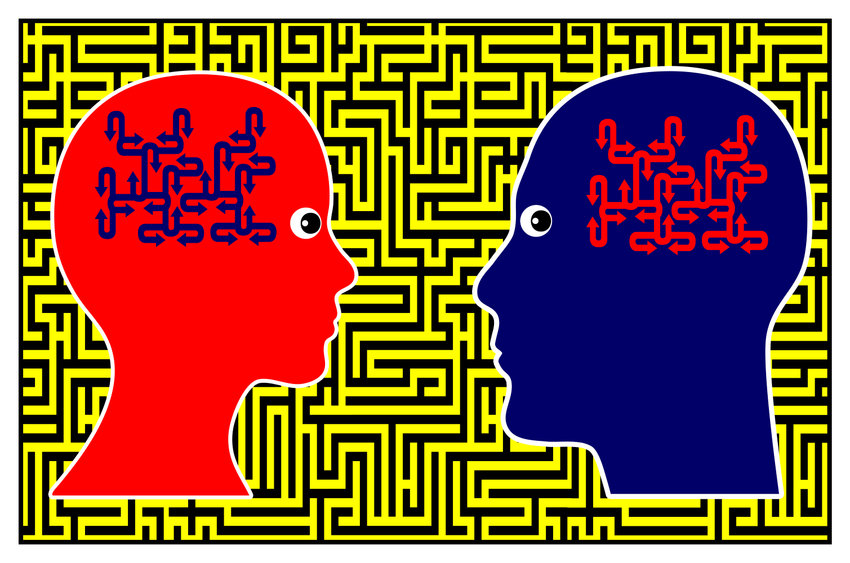
How can we Build a Shared Reality in a Fractured World?
’Twas the Season. Many of us made the journey home to reconnect with our family of origins…. and all the relational baggage that implies. Some of us were lucky to get back on the plane without having had a literal food fight during the Season-of-Joy-and-Giving.
Both my parents have passed away now, but when I went home for the holidays…I dreaded reconnecting with my only sibling. There were so many things she and I could not talk about without erupting that there was little left that we could mutually enjoy, other than scoring coupons at Big Box stores. Then she and her husband started making millions, and even coupons were off the table.
I used to fantasize about all of us getting stuck in an elevator with a family counsellor, or a referee – someone who could help bridge the chasms that had calcified between us and rediscover our common ground, but that was not to be. This small family fractal repeats in downward spirals across our culture. If we don’t find a way to build common ground, we may irredeemably fracture our nation for decades to come.
Can we disagree …productively?
Julia Dhar, a Principal with Boston Consulting Group, describes our country is one where “Contempt has replaced conversation.” She declares her mission in her TED talk as “finding ways to help us to disagree productively”.
Her experiences as a debater reminded me of my own teenaged assumptions about successful debaters. They must have a magical ability to make the most extreme argument palatable, right?
By now, most of us are discovering that the true way to reach people is to find common ground – to invite listeners into a shared reality – the antidote to Alternative Facts.
Shared Reality vs. Alternative Facts
The trick is not a Eureka discovery. It simply requires an old fashioned face to face discussion across the table. Recent research by Julianna Schroeder at UC Berkley bears this out. Having to actually listen to someone’s voice as they make an argument humanizes their point. And further, if we are required to then switch sides and argue forcibly for the opposing side, our own assumptions and suspicions get dismantled and we step even further into empathy.
Ego isn’t happy…..
But this is where the ego starts to get rattled, right? The more deeply we invest in a particular point of view at the outset, the more we identify our Selves with our Ideas, and the tougher it is to build empathy. Ego must now be defended – even in the face of an eroding position. Ego demands that we yell even more loudly and insult more viciously. Ego-driven assertions leave us unable to shift enough to take in vital new information, and makes it nearly impossible to change our minds.
And how’s that working out for any of us? Topical interactions, particularly online, can become so toxic that only bullies with extreme opinions feel at home. The rest of us avoid discussion of sensitive yet critical issues that need to be worked through in order to have healthy relationships, workplaces, democracies.
Dhar suggests that we replace the typical free-for-all with a discussion structure – resembling an actual debate – where everyone gets a defined amount of time to have their say, but then must listen to the opposing side before responding. Personal attacks- bullying- doesn’t work in a structured sequence; the tactic is largely un-researched and doesn’t stand up to scrutiny.
Dhar asks a question that I find intriguing at the start of a New Year.
What is it that you have changed your mind about, and why? And if you have not changed your mind – what stands in your way?
Happy 2019!
Here’s an intriguing, interactive tool to get your group into a mental space conducive to authentic dialogue on important issues: Shift/POV: From Conflict to Collaboration in One Hour.

